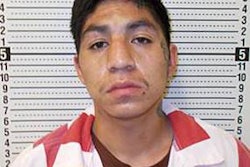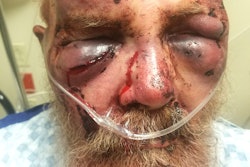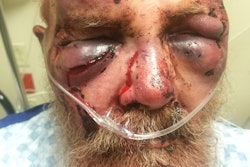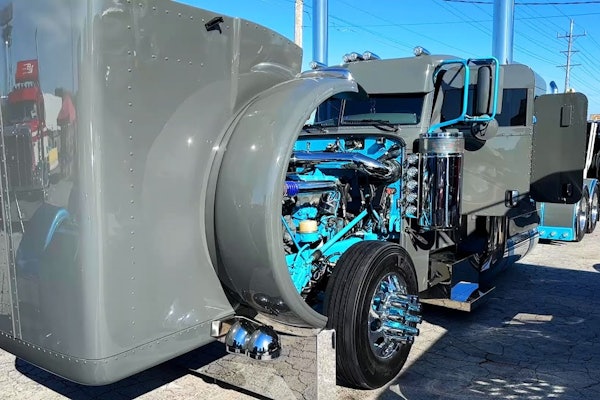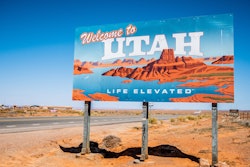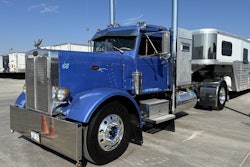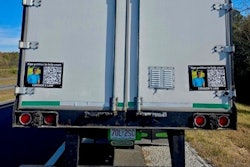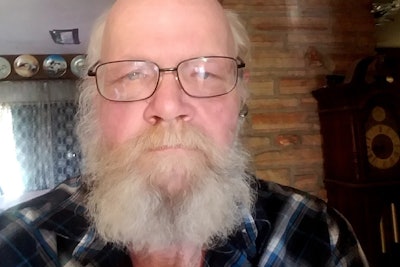 Amos Phillips says his anti-seizure medication makes him ineligible for commercial driving.
Amos Phillips says his anti-seizure medication makes him ineligible for commercial driving.The driver beaten in his cab while parked at an Idaho Native American reservation truck stop, Amos Phillips, says he probably will be unable to drive commercially again.
He says he can’t drive while he’s taking medication for the seizures that followed his Sept. 3 beating, and was told he might need to remain on the medication for the rest of his life. Phillips, 64, says he would have to be off the drug and free of seizures for five years before he could resume truck driving.
Phillips says he was interviewed Friday by the FBI, which has taken over the investigation. The FBI will continue to work with the Fort Hall Reservation Police on the case and has no other information to release, says FBI spokeswoman Sandra Barker.
“Just my talking to them gave me the confidence they will eventually catch the guy,” Phillips says. His only identification of the assailant is that he was a large Native American.
“Before, I figured if they did figure out who it was, they wouldn’t do anything to him,” he says. “It’s awfully hard, from what I understand, to get the Indian nations to do anything to a fellow brother, so to speak.”
Factors in determining jurisdiction in crimes that have a Native American bearing include whether the crime took place on a reservation, whether the victim or suspects are Native Americans, and the severity of the crime. Some investigations are handled entirely by reservation law enforcement.

During the FBI interview, Phillips says, “They didn’t have a whole lot to say. They wanted to know my side of it.”
Phillips and Fort Hall Police have said they await state lab DNA results from a cap left in Phillips’ cab by the intruder. The incident took place around 2:30 a.m. at the TP Truck Stop, on I-15 just north of Pocatello. It’s operated by the Shoshone-Bannock tribes of Fort Hall.
Phillips, who has no health insurance, says he should qualify for Idaho’s victim aid program, which would help pay for his medical bills. A crowd-funding campaign started by his employer, John Williams, had raised $5,225 from 48 donors as of Wednesday. Williams has said lawyers are checking into a potential claim on the truck stop’s insurance that also would help with medical bills.
Williams owns JWE Inc., a five-truck fleet based in Camdenton, Mo., which is also where Phillips lives. He has offered a $1,000 reward for information leading to the conviction of Phillips’ attacker.
Phillips sustained broken facial bones and a blood clot on his brain from the attack. He is taking levetiracetam, an anticonvulsant used to treat epilepsy and other brain disorders. The medication makes him extremely tired, no matter how much he sleeps, and he can stand up for no more than 20 or 25 minutes without getting too dizzy.
“I have, all of a sudden, started getting slight headaches every other to every third day,” he says.
Phillips says though he wants justice for the man, “I don’t feel any anger towards the guy. I do wish he would make peace with God in this life before he has to face God face to face.”

